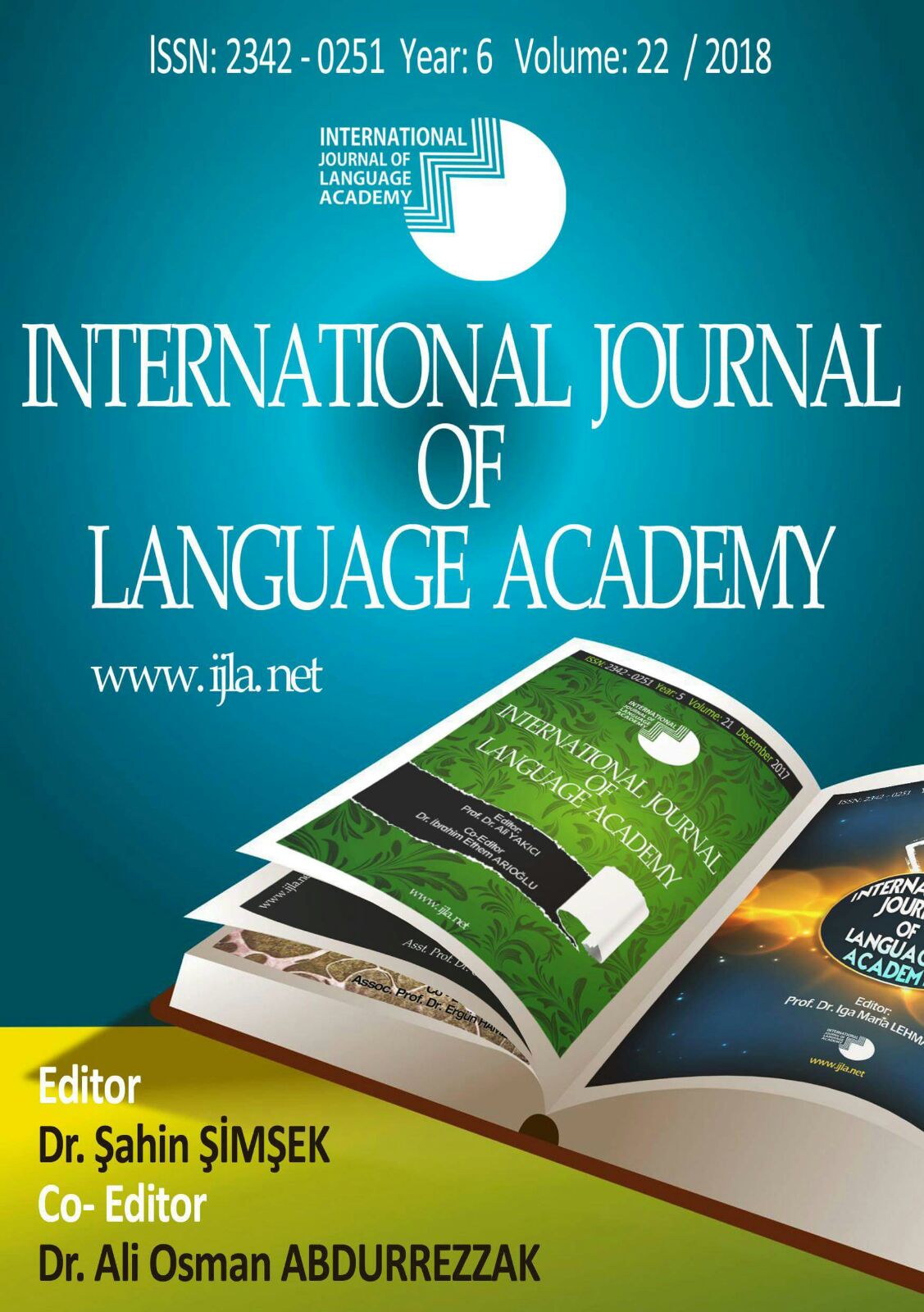Author :
Abstract
İnsanın varlığını sürdürmek için düşünmesi, onun varlığının ön koşuludur. Bu nedenle insan düşünsel ve eylemsel olarak kendini var etme süreciyle birlikte bir özne “ben”e dönüşür. Bu dönüşümde birey, “ben”, kendisi, toplumsal norm ve inançlara karşı gelerek “insan olma” tecrübesini yaşar. Uyar’ın şiirlerinde insanın kendi olma tecrübesi, şiirdeki özne “ben”in kendini kurma çabası etrafında derinleşerek tutunma noktaları oluşturur. “Ben”in kendi olma tecrübesinde başkaldırı, varoluş gereğidir. Bundan dolayı Turgut Uyar, şiirlerinde başkaldırıyı “ben”in kendini kurma süreci olarak görür. Şairin şiirlerinde başkaldırı; “ben”in kendine, toplumsal değerlere ve kutsala başkaldırması şeklinde derinleşir.Turgut Uyar’ın şiirlerinde “ben”in kendine başkaldırması, yaşanan düşünsel çatışmalar sonucunda ortaya çıkar. Nitekim şiir öznesi, kendi bireysel varlığının varoluşsal özgürlüğünü kavradıkça sınırlandırılmışlığını fark eder. Bu fark edişle “ben” kendi içine dalarak, varoluş bilincini ve kendilik sürecini irdeler. Turgut Uyar şiirlerinde bireyin yerleşik normlar tarafından kuşatılmasına karşı çıkar. Bu yüzden şiirlerdeki özne “ben”, toplumsal normlara düşünsel ve eylemsel bir başkaldırı içindedir. Turgut Uyar şiirlerinde toplumsal değer ve normlar, “ben”in özgürlüğü karşısında bir değer olarak görülür. Bu yüzden şiir özneleri gelenek, töre, siyasi erk, kamusal normlara başkaldırı eğilimindedir. Turgut Uyar’ın şiirlerinde Tanrı ve onun kutsallarına başkaldırı, diyalektik bir yapıda karşımıza çıkar. Uyar, şiirlerinde Tanrı ve kutsallarını yaşamın merkezine koymak yerine, Tanrı ve değerlerini yaşamın dışına doğru iteler.
Keywords
Abstract
It is a precondition for man to think about his existence. For this reason, Man Transforms himself into a subject “I”, along with the process of self-existence, both intellectually and verbally. In this transformation, the individual experiences the experience of being “human” by opposing “me” and social norms and beliefs. In the poems of Uyar, human experience of being their own creates the points of holding by deepening around the effort of the subject “I”in poetry. The rebellion in the experience of”i is by existence. Therefore, Turgut Uyar sees rebellion in his poems as the process of self-establishment of “I”. The revolt in the poet's poems is deepened in the form of “Ben”rebellion against himself, social values and benediction.In the poems of Turgut Uyar, the self-revolt of “Ben”emerges as a result of the intellectual conflicts. As a matter of fact, the subject of poetry realizes that its individual existence is limited as it grasps its existential freedom. With this difference, “I” enters into itself, examines the consciousness of existence and the process of self. Turgut Uyar opposes the siege of the individual by the established norms in his poems. For this reason, the subject in poems “i” is in an intellectual and actionical revolt against the norms of society. This is a great article. Therefore, the subject of poetry tends to revolt against tradition, tradition, political Erk, public norms. In Turgut Uyar's poems, God and His Holiness revolted against us in a dialectical structure. Instead of putting God and His saints at the center of life in his poetry, he pushes God and his values out of life.Keywords: Turgut Uyar, I, the other, revolt, social values, God and holy





